PUL-I-KHUMRI (Pajhwok): Pajhwok Afghan News’ findings show food items and medical tools purchased for the needy under the National Food Package (NFP) programme in northern Baghlan province cost about 1.7 million afghanis more than the market price.
In Baghlan, the NFP programme has so far been implemented in 13 councils of Pul-i-Khumri, one in Andarabha-i-Da Salah district and 14 in Baghlan-i-Markzai district. The scheme has thus been enforced in a total of 28 councils.
Bills and other documents obtained by Pajhwok show the food and health items were bought at higher prices than the original rates in Gaz, Massoud, Mirza Hakim and Sarak-i-Haft Fabrika villages of Baghlan-i-Markzai district.
A total of four types of items were purchased by NFP officials, with a significant difference in the market and actual prices, especially the flour rates.
As government officials deny buying the items at higher prices, local council heads point out another reason for the rate difference.
Difference in prices:
- Gaz village:
Documents show food and health items were distributed to 43 families in Gaz village of Baghlan-i-Markazi district. They were bought at higher prices than the market rates.
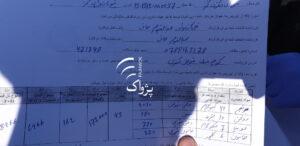
A 49-kilogram bag of domestically-produced rice, whose market value is 1,820afs, was purchased for 2,030afs under the NFP programme.
A seven-kilogram bean bag, accounting for 650afs in the market, was bought for 770afs. A six-piece pack of hand washing soap — Sheri soap — costing 140afs in the market –was purchased for 220afs.
- Massoud village:
Documents indicate the items delivered to the needy in Massoud village were also purchased at higher rates. A bag of Kazakh flour was bought for 1,970afs, compared to the market price of 1,700afs.
A seven-kilogram bean bag, costing 650afs in the market, was purchased under the NFP programme for 770afs.
A six-piece pack of hand washing soap (Sheri), costing 140afs in the market, was purchased for 370afs and distributed to 64 families.
- Mirza Hakim village:
A bag of Kazakh flour was purchased for 1,850afs, compared to the market rate of 1,700afs.
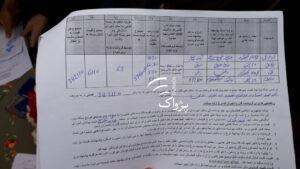
The price 12 pieces of “Traffic & Silk” hand-wash soap is 280afs in the market. NFP program officials, however, purchased it for 550afs and distributed it to 94 families.
- Sarak-i-Haft Fabrika village:
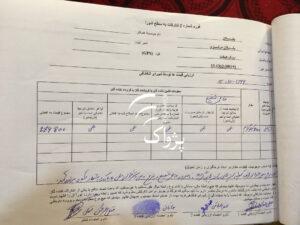
A bag of Kazakh flour was bought for 1,780afs, against the market price of 1,700afs. The flour was distributed to 160 families.
Food and health items were delivered to about 361 families in Baghlan-i-Markazi district, but their cumulative rate was 108,300 afghanis higher than the market price.
Considering that items worth 4,000 afghanis were provided to each family under the NFP programme, document obtained for the four villages of Baghlan-i-Markzai show that, depending on the actual price of the items distributed, each family received items cost less than 3,700afs.
Heads of people councils on higher prices:
Heads citizen charter councils in the district acknowledged the purchase of items at higher prices under the NFP programme, linking the issue to lack of cash and the coronavirus outbreak.
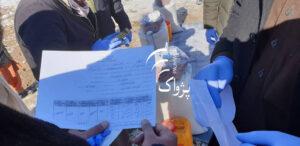
Arbab Qasim, head of the council in Hakim Khan village, said: “As there was no cash to buy items under the NFP programme, no one was willing to sell us the goods on credits. The items have thus been bought at higher prices.”
Lal Mohammad, head of the Baladori village council, saw the coronavirus behind the higher price, saying: “The Covid-19 situation was one of the reasons why the prices of all commodities in the market have gone up.”
Beneficiaries of the program are unaware of the prices of goods. Some of them told Pajhwok they were satisfied with the food aid, including flour, ghee, soap and beans.
Council heads responsible for buying items.
Mohammad Rasoul Irfan, director of rural development in Baghlan province, told Pajhwok that the rural development department was only responsible for facilitation.
He added that it was up to the council directors, not the rural development department, to decide on the price at which the goods were purchased or if they differed from the market price.
On the other hand, Eng. Ahmad Zia Rahimi, Provincial Manager of the Citizen Charter Program in Baghlan, said that the NFP had been well implemented and no corruption had taken place in it so far.
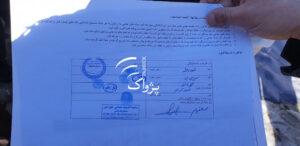
He added: “Food worth 4,000afs for a family was considered. Since council members did not reserve the right to spend the money, I don’t think they have expended the funds whimsically.”
Outcome:
Documents regarding the purchase of food and health items for the deserving families in the four village of Baghlan-i-Markzai district show the total price difference was (108,300) afghanis.
Given the higher purchase rates of food items for 5,696 families in 28 villages of the district under the NFP programme, the total difference comes to 1,700,000 afghanis.
sa/mud




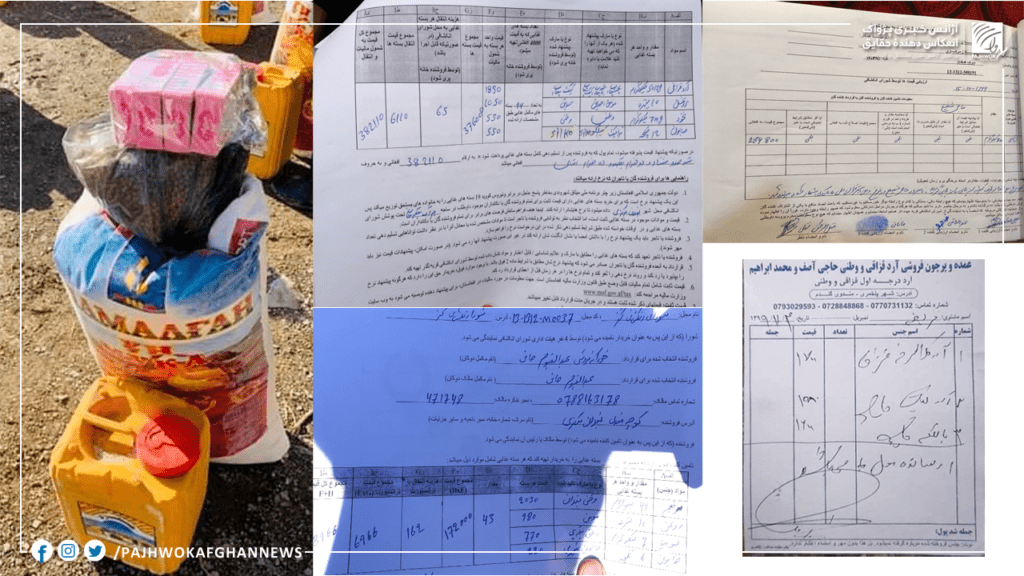


GET IN TOUCH
NEWSLETTER
SUGGEST A STORY
PAJHWOK MOBILE APP